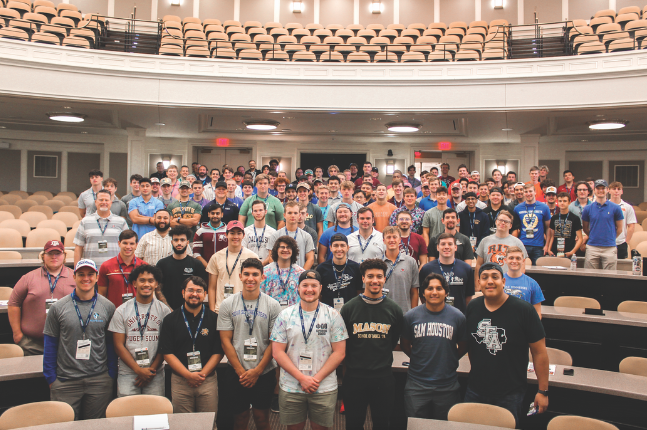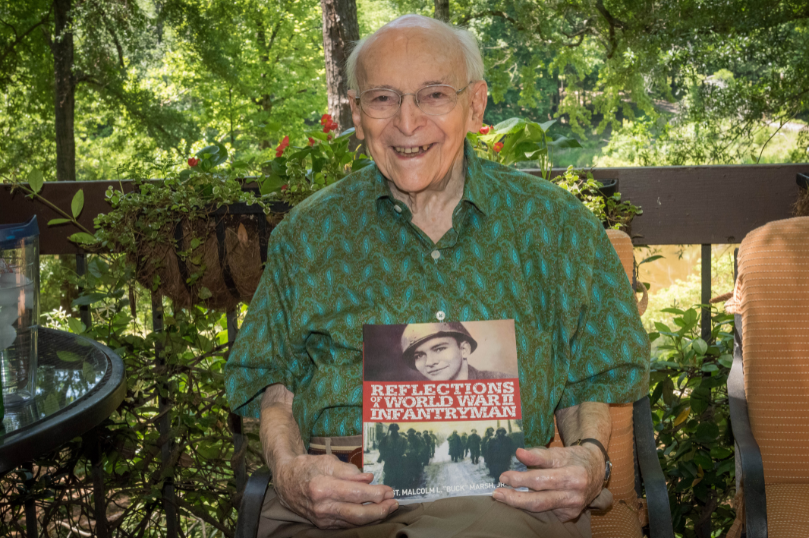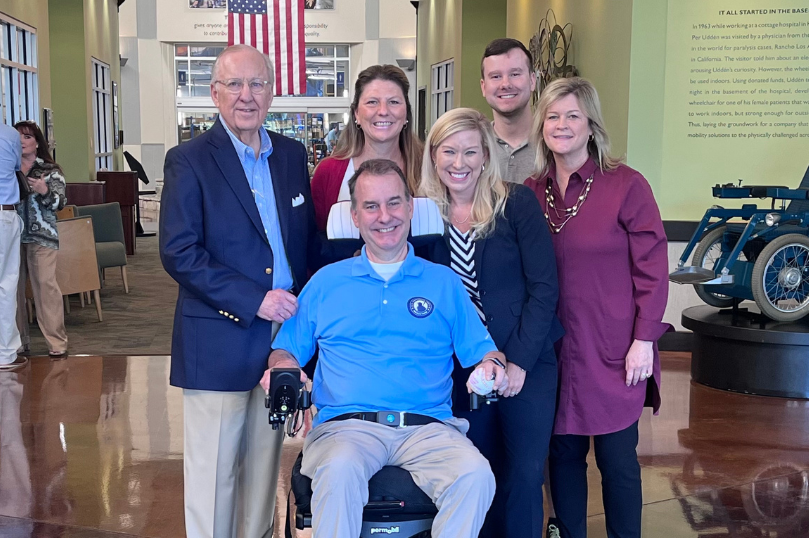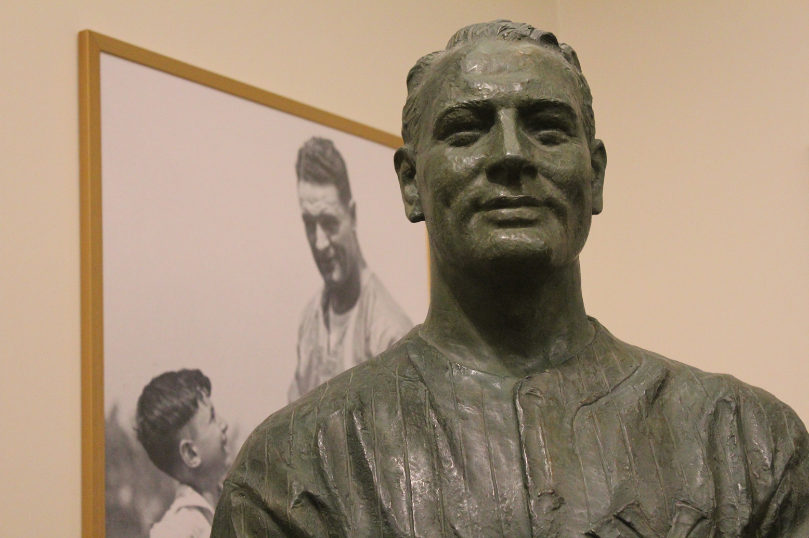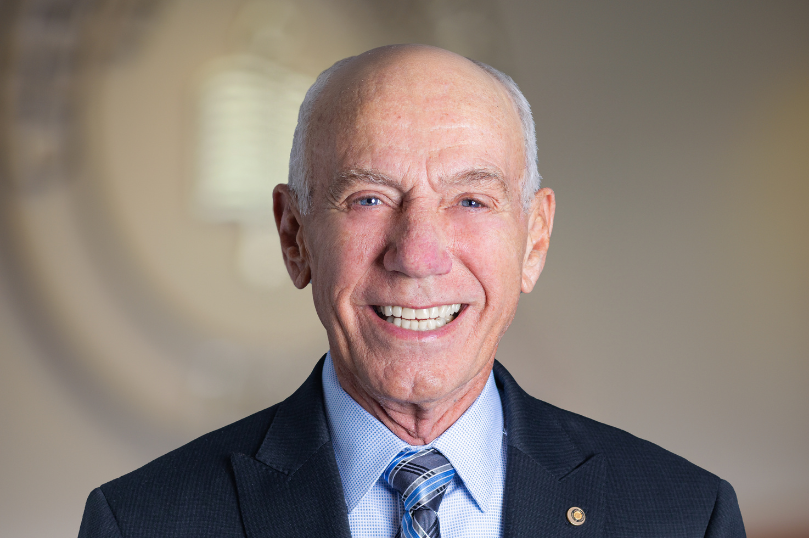How We Got Here
Phi Delta Theta works tirelessly to fulfill the principles of The Bond by providing our members with a lifetime experience that allows each member to reach their own personal greatness. The Fraternity understands that in order to do this, it must help broaden the perspectives of members to prepare them for an increasingly inclusive world and create environments that attract and support a diverse population
To meet this challenge, Phi Delta Theta examined its Phi Delt 2030 strategic plan to sharpen its focus on these important priorities. Enhancements were made that help us ensure greater access to our experience that is proven to help individuals to enhance their personal trajectory through best-in-class leadership programming, mentorship, and community. A diversity and inclusion commissioner and committee were developed to guide strategy, advise all staff and volunteers, and consult chapters to help implement programming and address challenges.
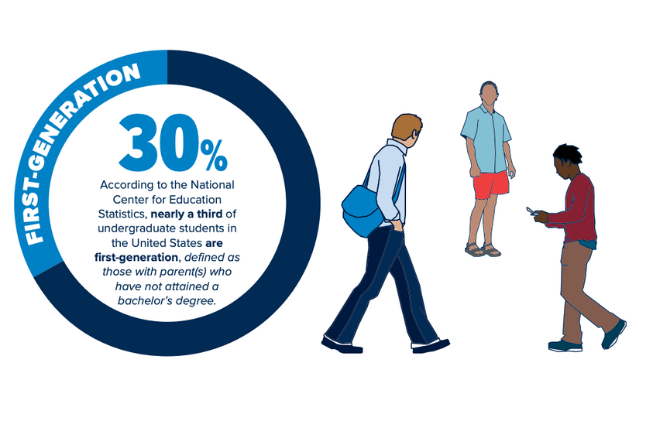
Demographics
Phi Delta Theta’s diversity and inclusion work includes understanding the makeup of the Fraternity’s undergraduate membership. Being transparent about our undergraduate member demographics has facilitated valuable conversations and impactful decision-making. It also led to a focus on attracting first-generation students to our organization.
Through our partnership with Dyad Strategies, we know that first-generation college students are less likely to prioritize the social aspects of the Fraternity and have different life experiences and perspectives. On average, they work twenty or more hours per week, pay their own dues, and need financial assistance. We also learned that their views are more inclusive, promote further diversification, and help our chapters focus on leadership and philanthropy, ensuring a better and healthier experience for all. View the full report here.
First-Generation Statistics
Primarily due to financial challenges, navigating unfamiliar environments, and a lack of on-campus mentorship, retention and graduation rates for first-generation college students are significantly lower than for students with parents who attended college.

Where We Are
We have worked to expand our programming and support to first-generation students with the guidance of our diversity and inclusion committee. The committee’s first effort was to work with the staff and General Council to develop a position statement for the Fraternity on diversity and inclusion.
Phi Delta Theta’s Diversity and Inclusion Statement
To achieve individual greatness for its members, Phi Delta Theta welcomes all, regardless of abilities, creed, faith, ethnicity, race, sexuality, or socioeconomic class. The Phi Delta Theta Fraternity acknowledges and understands the unique backgrounds and experiences that each member brings to the Fraternity and embraces the value of diversity among our membership. Guided by our founding Cardinal Principles of Friendship, Sound Learning, and Rectitude, Phi Delta Theta is committed to expanding the perspectives of our members to cultivate and promote an inclusive environment for all current and potential members.
Diversity and Inclusion Programs
Using the diversity and inclusion statement as a guide, the Fraternity will continue to offer educational programming that addresses cultural competency and implicit bias. Combined with the financial support for first-generation students from the Phi Delta Theta Foundation, these devices will help shape the membership experience for all new and current members.
Our Obligation
In 2021, with funding from the Phi Delta Theta Foundation, an online educational course entitled “Our Obligation: Diversity and Inclusion” was introduced into the Ihlenfeld University for Online Education (PDT U). The course aims to help members identify who they are, understand the differences in others, learn and describe these differences, and reflect and apply best practices to cultivate inclusive, respectful interactions with others.
All Phi Delta Theta members must complete this program at least once during their undergraduate years.
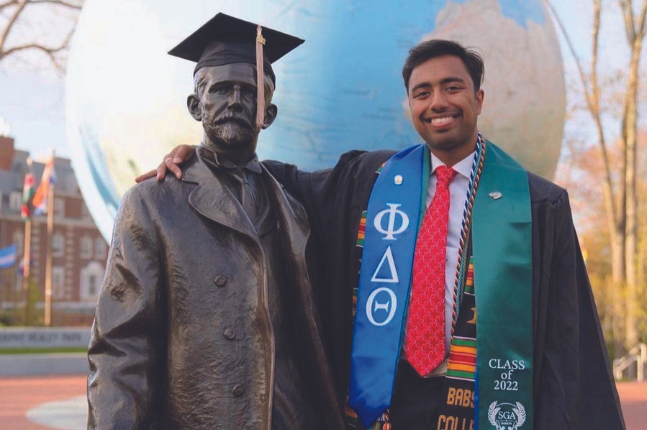
The Role of the Chaplain Officer Position
As Phi Delta Theta undergraduate members continue to better understand themselves and their surroundings, there are bound to be questions and difficult conversations within the chapter. To address this, the Fraternity focused on expanding the role of the chaplain position and released a new position description. The students elected as a chaplain are now committed to guiding their chapter through any difficult conversations that may arise regarding diversity, inclusion, mental and physical health, and spirituality.
The 2022 Kleberg Emerging Leaders Institute included a special track for undergraduates holding the chaplain position. Those in attendance were equipped with the tools to facilitate difficult conversations, locate helpful campus and community resources that may already exist, and promote mental health, diversity, and inclusion within their chapters.
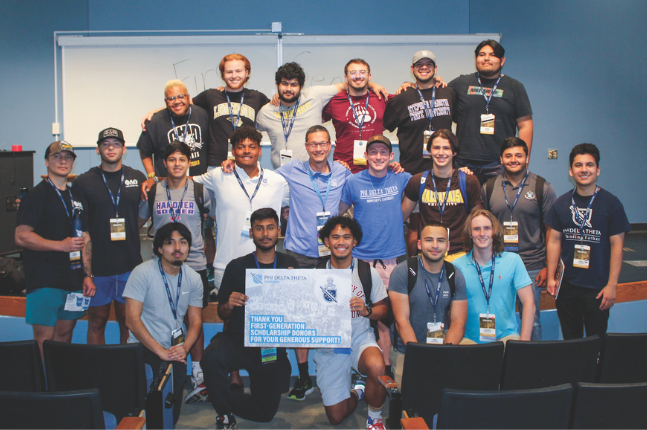
First-Generation Student Scholarships
The programming and educational side of the Fraternity’s diversity and inclusion efforts is necessary to create long-term systematic change within our organization. Also essential is bridging the financial gap to membership for members from underrepresented communities. The First-Generation Student Scholarship for first-generation college students was born out of this necessity. Therefore, in 2021 the Phi Delta Theta Foundation Board of Trustees approved a four-year funding initiative. The Foundation would provide $250,000 in scholarships annually to new members of Phi Delta Theta who did not have a parent or guardian complete a four-year college degree program.
During the 2021-2022 academic year, 149 students received a First-Generation Student Scholarship. Of those, twenty-eight attended the Kleberg Emerging Leaders Institute. General Council President Moe Stephens II sat down with these students. Here are some of the quotes that came out of that session:
- “This scholarship let me quit my job and focus on school.”
- “I was able to return for the second semester.”
- “I can now keep playing soccer instead of having to get another job.”
- “I want to work with my recruitment chair to help him understand this scholarship and the others available from the Phi Delta Theta Foundation.”
- “I’m excited to bring others into the chapter who can benefit from this scholarship, but more importantly the brotherhood.
- “Phi Delta Theta is now my family, and I want to give back to my family to sustain it.”
Scholarships directly impact the financial hardships of first-generation college students and indirectly lower the economic burden of membership into Phi Delta Theta.
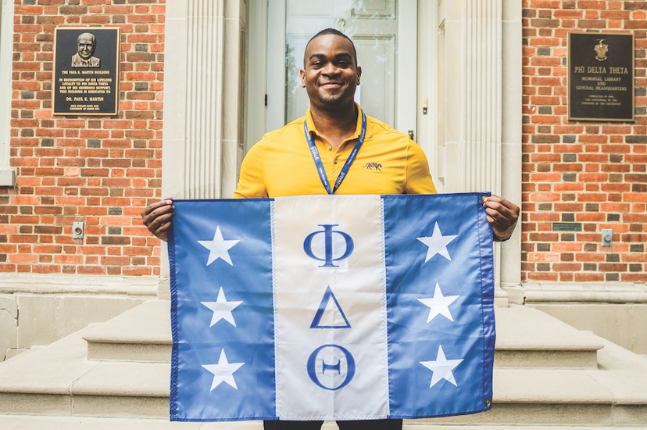
Where We’re Going
As Phi Delta Theta continues to work towards attracting more diverse populations and broadening perspectives to prepare our members for an increasingly inclusive world, it’s vital the Fraternity can track the effectiveness of its current and future programs related to diversity and inclusion.
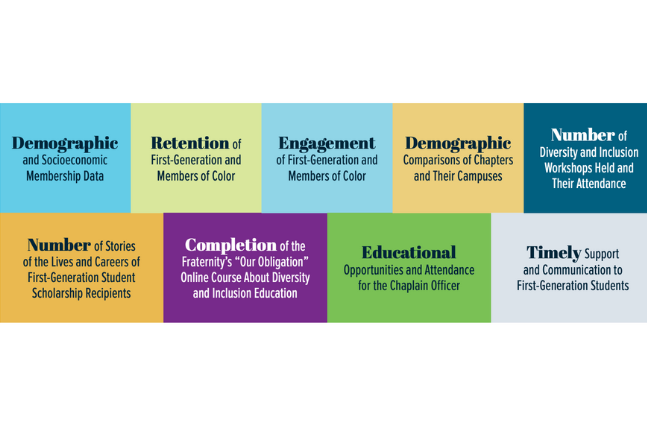
While Phi Delta Theta is ecstatic and committed to the work done to date, it is only just the beginning. The Fraternity is excited to continue prioritizing these critical initiatives and further support our undergraduates through graduation as they strive to become the greatest version of themselves.
First-Generation Student Analysis
By Dr. Gentry McCreary, Dyad Strategies
To help understand the experience of first-generation college students in Phi Delta Theta Fraternity, we compiled a series of data points comparing the experiences of first-generation members to other members. Using appropriate statistical testing, we calculated mean differences to understand better the differences in how first-generation members experience the Fraternity. These analyses were conducted using the data from spring 2022.
First-generation members experience the Fraternity like non-first-generation members in several ways, but a handful of key differences exist. Those differences include:
- First-generation members are less likely to prioritize the social aspects of membership, as demonstrated by significantly lower scores on shared social experience brotherhood.
- First-generation members are more inclusive to other potential members from diverse backgrounds, as demonstrated by significantly higher inclusive chapter experience scores.
- First-generation students are more likely to pay all their membership dues themselves, with no help from parents or other parties.
- First-generation members are significantly more likely to report working over twenty hours per week.
Collectively, these data points paint a compelling picture. First-generation members are satisfied and feel just as connected within their chapters as non-first-generation members. Their inclusion in chapters promotes healthier chapter cultures that are more inclusive and less likely to prioritize the social aspects of membership. However, these members are less likely to receive parental support and are more likely to have to work long hours to afford their membership dues. These findings suggest that investments made by the Fraternity in helping make the Phi Delt experience more accessible for first-generation students are investments worth making, not only from a spirit of inclusion but because these members promote healthier chapter cultures.

